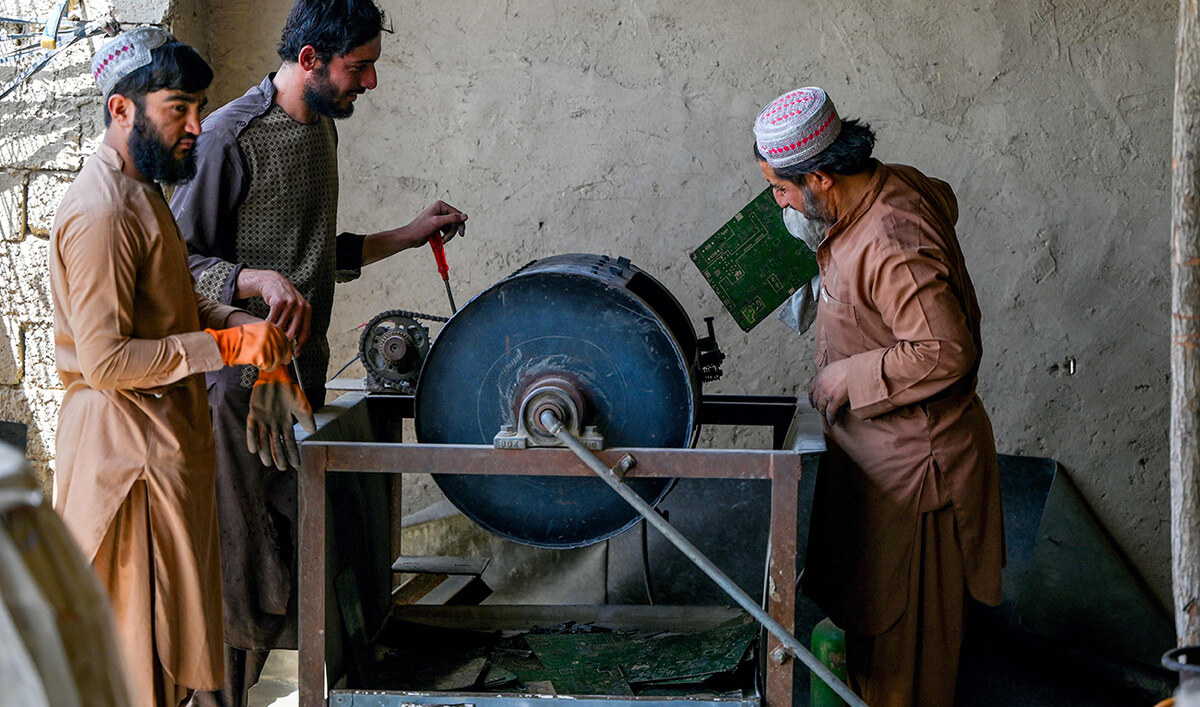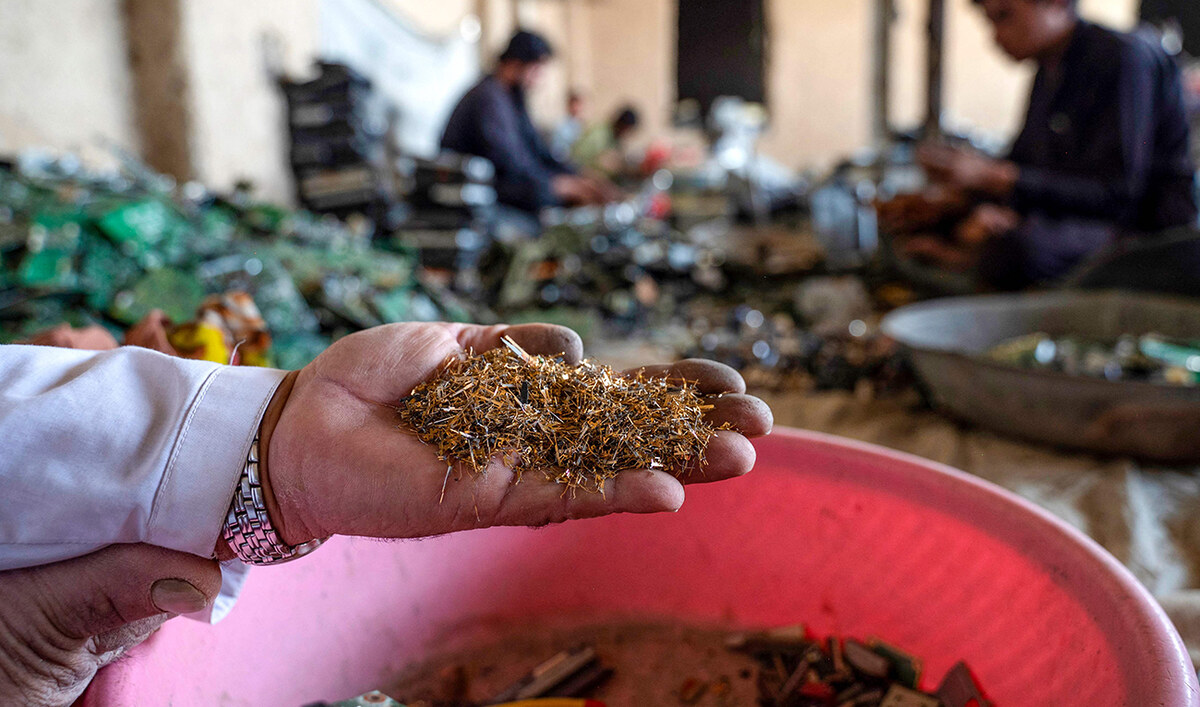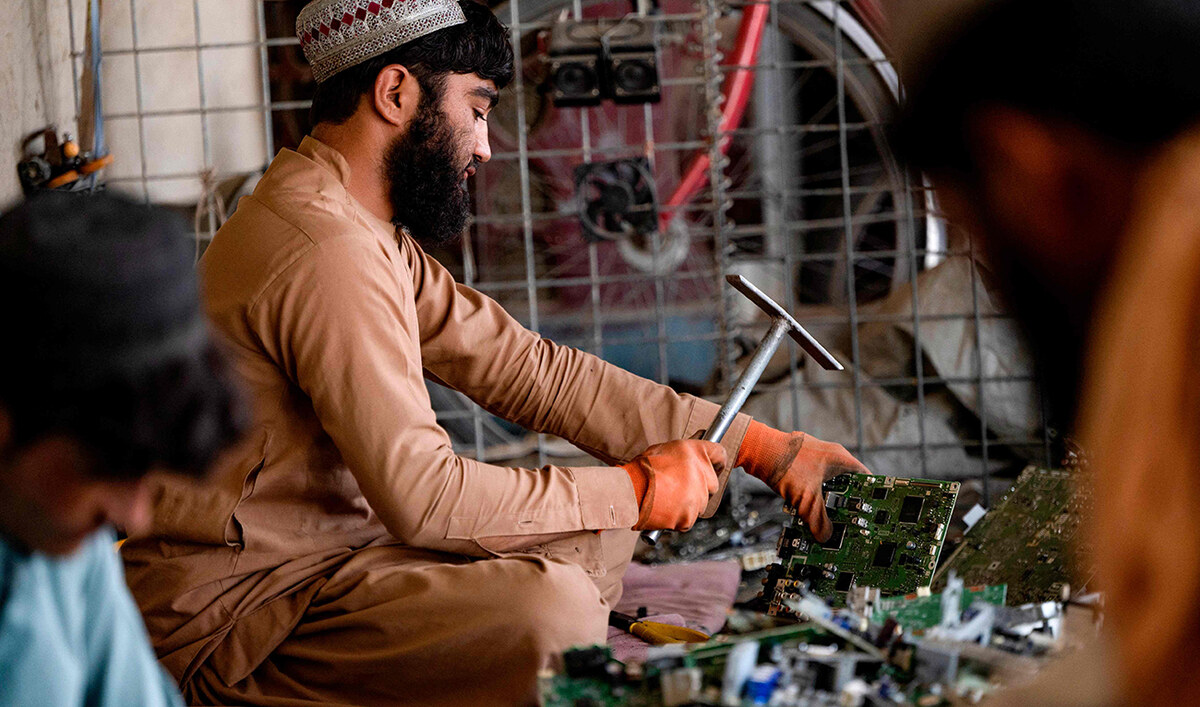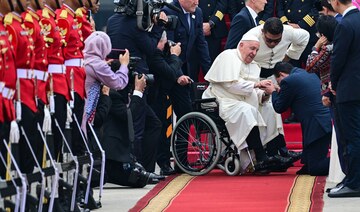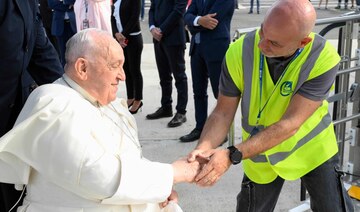JAKARTA: Pope Francis urged Indonesia to live up to its promise of “harmony in diversity” and fight religious intolerance on Wednesday, as he set a rigorous pace for an 11-day, four-nation trip through tropical Southeast Asia and Oceania that will test his stamina and health.
Francis had a packed first full day in Indonesia, meeting with outgoing President Joko Widodo and other Indonesian authorities at the presidential palace and then greeting Catholic priests, nuns and seminarians at Jakarta’s main cathedral in the afternoon.
Cannons boomed as Francis joined Widodo on the veranda of the palace along with President-elect Prabowo Subianto. A marching band, stiff-legged troops and children in traditional Indonesian dress welcomed the first pope to visit in 35 years.
In his remarks to the Indonesian authorities, Francis compared the country’s human diversity to the archipelago’s 17,000 islands. He said each one contributes something specific to form “a magnificent mosaic, in which each tile is an irreplaceable element in creating a great original and precious work.”
And yet, Francis warned that such diversity can also become a source of conflict. It was an apparent reference to episodes of intolerance that have flared in recent years in Indonesia as well as a broader concern about conflicts raging around the world.
“This wise and delicate balance, between the multiplicity of cultures and different ideological visions, and the ideals that cement unity, must be continuously defended against imbalances,” Francis said. Political leaders, he said, had a particular role to play but he also assured Widodo of the Catholic Church’s commitment to increasing interreligious dialogue.
“This is indispensable for meeting common challenges, including that of countering extremism and intolerance, which through the distortion of religion attempt to impose their views by using deception and violence.”
Regionally, internal conflict in Myanmar has forced more than 700,000 Rohingya to flee to Bangladesh, where thousands have fled overcrowded, violent camps to countries including Indonesia. Francis met with at least one Rohingya refugee upon arrival Tuesday at the Vatican’s residence in a show of support for refugees to be welcomed, not rejected.
Farther afield, Indonesia has long been a strong supporter of Palestinians and the government has regularly condemned Israel’s war in Gaza. Widodo thanked Francis for the Vatican’s support of Palestinians since the start of the war.
“War will not benefit anyone, war will only bring suffering and misery to the common people,” Widodo said. “Therefore let us celebrate the differences that we have. Let us accept each other and strengthen tolerance to realize peace, to realize a better world for all humanity."
Francis arrived in Jakarta on Tuesday to kick off the longest, farthest and most difficult trip of his pontificate given his myriad health problems. At 87, he uses a wheelchair, has regular bouts of bronchitis and has had multiple surgeries for intestinal problems.
By the trip’s end on Sept. 13, Francis will have flown 32,814 kilometers (20,390 miles) to visit Indonesia, Papua New Guinea, East Timor and Singapore, one of the longest papal trips ever in terms of days on the road and distances traveled.
Francis appeared in good form and spirit on Wednesday, even as he stood for a long period to greet the Indonesian government delegation and listen to the two nations’ anthems. He ad-libbed a joke during his official remarks that drew laughter from Widodo and the crowd, praising Indonesia’s relatively high birthrate while lamenting that in the West, “some prefer a cat or a little dog.”
That said, Francis’ prepared remarks were shorter than usual in a possible bid to spare him the strain of speaking for long periods.
In Indonesia, Francis is seeking to support the Catholic community, which only makes up three percent of the population of some 275 million, while hoping to encourage greater ties with the country that is home to the largest Muslim population.
The highlight of Francis’ first stop will be his participation Thursday in an interfaith meeting in Jakarta’s iconic Istiqlal mosque with representatives of the six religions that are officially recognized in Indonesia: Islam, Buddhism, Confucianism, Hinduism, Catholicism and Protestantism.
While Francis wants to highlight Indonesia’s tradition of religious tolerance, the country’s image as a moderate Muslim nation has been undermined by flare-ups of intolerance. In 2021, a militant Islamic couple blew themselves up outside a packed Catholic cathedral on Indonesia’s Sulawesi island during a Palm Sunday Mass, injuring at least 20 people.
Amnesty International said it hoped Francis’ visit would encourage an end to acts of intolerance and discrimination against minority groups and truly promote a respect for religious freedom that is enshrined in the country’s constitution.
In a statement, Amnesty noted that from January 2021 to July 2024, there were at least 123 cases of intolerance, including rejection, closure or destruction of places of worship and physical attacks. The perpetrators allegedly came from various backgrounds, including government officials, residents and community organizations.
“The pope’s visit has an important role to play in encouraging Indonesia to end intolerance and discrimination against all minority groups. Freedom of religion is a right protected by the Indonesian Constitution,” said Usman Hamid, executive director of Amnesty International Indonesia.
In the afternoon, Francis meets with Indonesian clergy and nuns in Jakarta’s Our Lady of the Assumption Cathedral for his traditional pep talk to the local church. Indonesia is home to the world’s largest Catholic seminary and has long been a top source of priests and nuns for the Catholic Church, though their numbers today are not keeping pace with the growth in the overall Catholic population.
Asia, along with Africa, has long been seen as the future of the Catholic Church, since the numbers of baptized faithful and men and women who decide to become priests or nuns is growing whereas in longtime Catholic bastions such as Europe and the Americas, their numbers have been shrinking.
While Indonesia can by no means compete with India or the overwhelmingly Catholic Philippines in terms of the overall number of baptized Catholics or priests, the number of men studying to become priests is continuing to grow here whereas the number of seminarians in Asia overall has started to level off or even decline in the last few years.
According to Vatican statistics as of Dec. 31, 2022, the last year for which data is available, there were 5,903 Catholic priests in Indonesia for a population of 8.29 million Catholics. Indonesia had 4,024 seminarians in 2022 compared to 3,777 in 2017.












